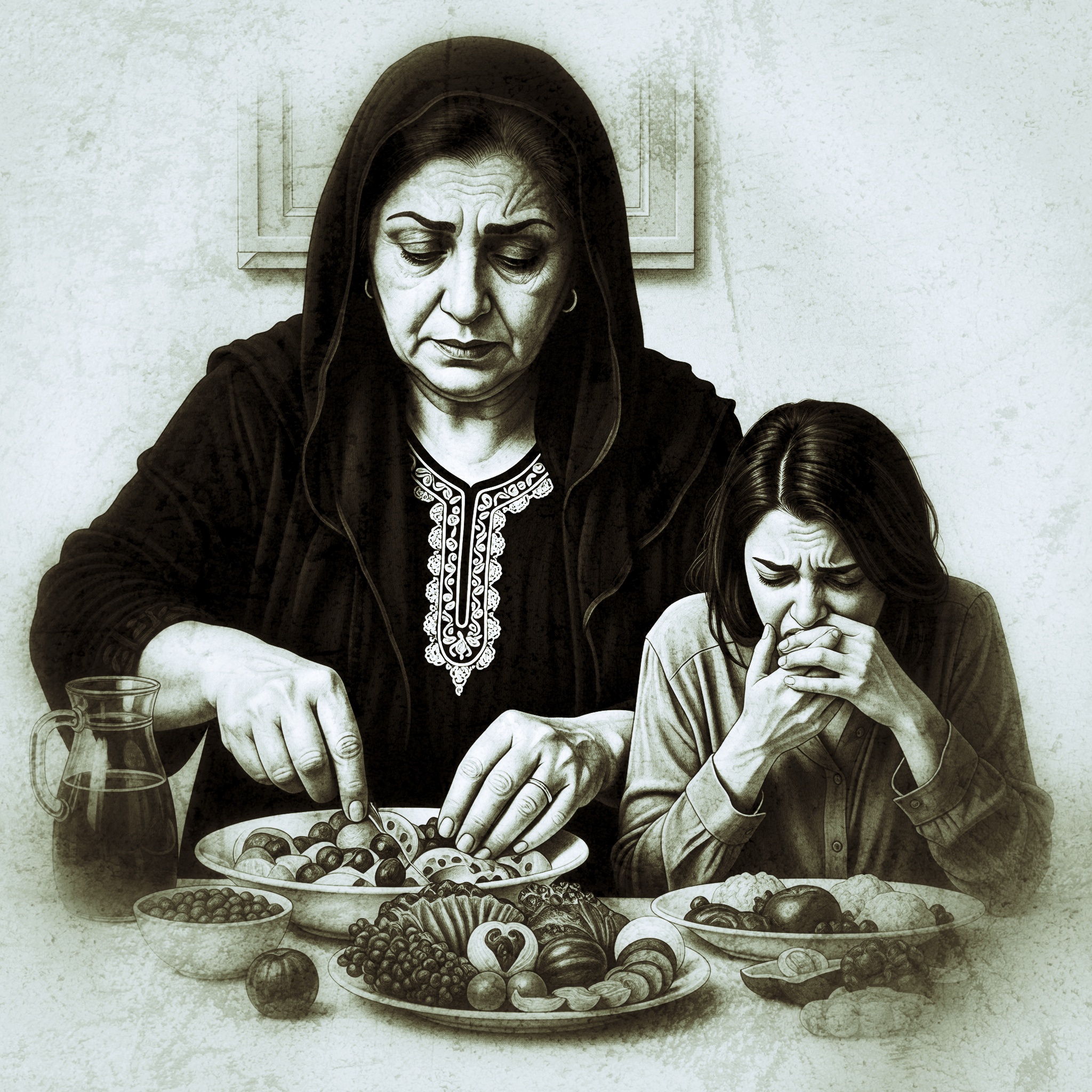Yesterday I was talking to an Arab woman, and she said something that struck me: “Like almost all Mediterranean and Middle Eastern women, I have an eating disorder.”
“Why? What does our region have to do with it?” I asked her.
She replied: “Because our mothers give affection through food and use it as a substitute for love.”
That made me think: behind that well-known anecdote about Southern grandmothers who won’t rest until you eat like a wild boar, there’s more than just a laugh.
We already know that eating disorders have psychological roots. But I had never thought of geographically locating this phenomenon in “warm” places. And yet, I found many studies and books confirming that emotional eating is more common in cultures where food holds strong symbolic and emotional value.
Places where women are usually in charge of the kitchen, where mothers become “love cooks.” Women who are often intuitive and smart, but not always educated. Women who could have been much more than mothers, but ended up living solely for their children.
From infancy, our mothers silence our cries with a bottle, and as we grow up, they tell us “finish everything on your plate, I made it for you.” These words hide a sharper message: “eat so you’ll love me.”
Mothers in regions where food is a language of love, like the Mediterranean and Middle East, are mothers who feed, nurture, sacrifice, but often don’t listen. There’s little emotional space, only acts of “giving” and “filling.” So food becomes a stand-in for dialogue, an emotional regulator that wrongly tries to fill something that can never be filled: the emptiness of unspoken feelings in our stomachs.
The food that nourishes can also suffocate. When dialogue is missing, affection gets chewed, swallowed, and then fought against. It becomes a conflict especially for daughters, who grow up hearing eat-so-you-love-me at home, but outside are bombarded with be-thin-be-beautiful-be-desirable. When love is tied to food, but the outside world demands control, thinness, and restraint, the body becomes the battlefield between need, guilt, and rebellion.
It’s no coincidence that women make up the majority of eating disorder cases: girls receive far more aesthetic messages than boys. Mothers (unintentionally) project their own emotional burden onto their daughters, and women are raised to contain pain rather than express it. The body becomes the container of the unspoken… and containers are made to be filled.
Cooking for others is surely an act of love. But like everything else we call “love” in this society, it can also be a form of control. How? By taking up space, leaving no room for autonomy. This happens in places where motherhood is the only accepted identity for women. In contexts where freedom of expression is limited, the body becomes the only space where control can be exercised.
Cooking can be love, but when love is silent, there’s a risk we’ll end up swallowing the pain too. Maybe, before we cook, we should try to understand that emptiness we feel inside.



